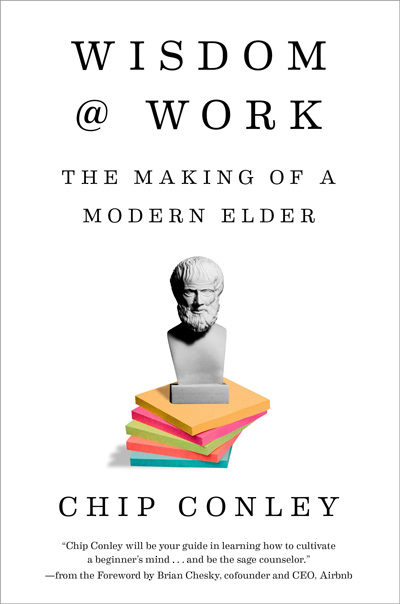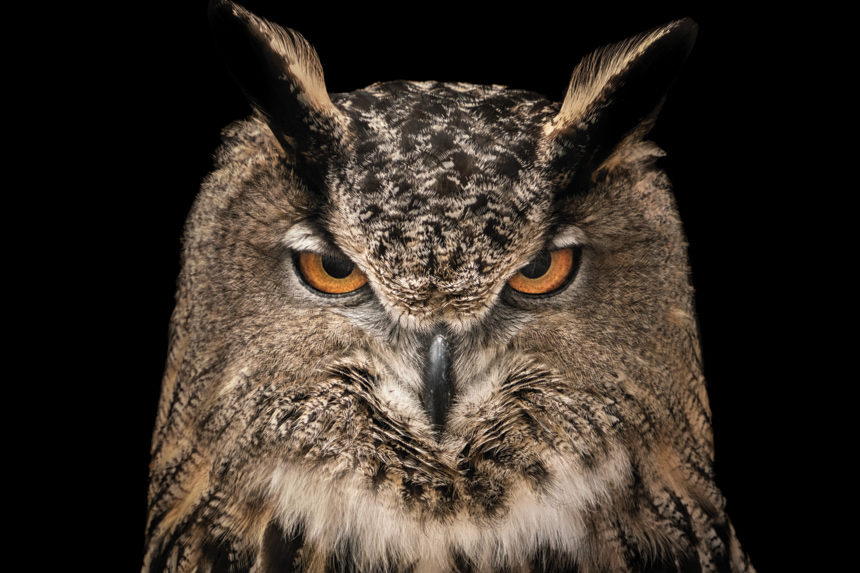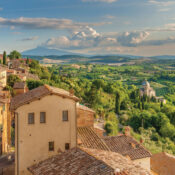
If you’re my age, 58, chances are you may live another 30 or 40 years. And, if you’re anything like me, you likely want to live a life that is as rich and meaningful as it is long. One thing I have learned is that living richly is less about the net worth on your bank statement and more about the value of the lessons you offer those who want to learn from you.
I love this delicate African proverb: “When an elder dies, it’s like a library has burned down.” Many indigenous communities couldn’t conceive of their cultural survival without elders, much in the same way we might have a hard time imagining life without books or music or movies. In the digital era, libraries — and elders — aren’t quite as popular as they used to be. But both are critical conduits for wisdom across the ages. If you keep your wisdom to yourself, it dies with you. But if you can lend your gifts of age to the next generation, that wisdom will never grow old.
The longer you’ve been on this planet, the more you have the opportunity to leave something behind. If we choose to be, we are all elders in the making.
It is often said that youth is wasted on the young. Does that mean wisdom is wasted on the old? It all depends on how we choose to experience the second half of life: Do we practice gratitude, or pursue gratification? Grow into our individuality, or confine ourselves to stereotypes or social norms? Strive to attain and share knowledge, or to accumulate material rewards?
Ancora Imparo — “I’m still learning” — was written above Michelangelo’s studio door in the ninth decade of his life. We all need this reminder, don’t we? Successful Wall Street trader Eli Scheier experienced his at age 46. With no criminal record, he ended up in a rural jail cell for 24 hours due to a drug possession offense and experienced a dark night of the soul. He realized he was always chasing something and yet had nothing lasting to show for it. Eli left his big New York job and moved to Israel to tap into his inner wisdom. He tended 300 sheep as a shepherd, studied the Kabbalah, and reconnected with what nature meant to him. Upon moving back to the U.S., he created an organic vegetable farm in upstate New York. He became known as “The Gardener,” and he now plants seeds in people, as a yoga teacher and clinical psychologist with a specialty in spirituality for mind and body. But what sets Eli apart is the knowledge that everything the seed will become is already within it. The gardener simply creates the atmosphere for the seed to live up to its potential. Eli helps people see that there’s a seed of wisdom in each one of us.
Most of us come to the realization that the older we are, the less we have to prove, and the freer we are from the shackles of convention. With this freedom comes life-giving energy, an unconquerable generosity of spirit, and a profound desire to give back.
In his book Boomer Reinvention, author John Tarnoff offers an eloquent metaphor from Carl Jung: “Imagine that you are standing outside on a sunny day. Think of yourself as a sundial. In the morning, as the sun rises, you cast a long shadow in one direction. As the morning continues, your shadow gets shorter and shorter until, at noon, you cast no shadow at all, with the sun being directly overhead.” What Jung meant by this is that by midlife we can completely lose the sense of who we are because we may be trying to live someone else’s image of us. But in the afternoon of life, according to Jung, something new happens. We begin to cast a shadow again. Tarnoff writes, “The key difference is that the shadow is lengthening away from us in a different, opposite direction from the one it took during the morning.” He says that we can follow that shadow as it extends out into new territory, redefining us in a new way, expanding us in a profound, fresh direction. “By the time the sun sets, and we cease to cast a shadow and merge into the night, we have extended ourselves fully, creating a complete life that reflects our transformation from learner and experimenter into explorer and discoverer.”
In their book The Joy of Old, John S. Murphy and Frederic M. Hudson suggest there are three peaks in life: physical, which happens in one’s early 20s; economic, which may happen in one’s 40s or 50s; and human, which happens later in life. During our physical peak, we are our bodies; during our economic peak, we are our work; and during our human peak, we are ourselves. Society often judges people in the second half of life based on a standard that venerates youthful bodies and high-octane, high-earning careers. But the true value of elders is in their humanity, and how they enhance the humanity of those who surround them.
“Getting old is like climbing a mountain; you get a little out of breath, but the view is much better!” —Ingrid Bergman
The challenge is to transcend our sense of history and self-importance and transplant ourselves into a habitat where a listening audience wants to receive the wisdom from our past, but where we can also look ahead, with optimism and anticipation, to falling in love with the future. As Ingrid Bergman suggested, “Getting old is like climbing a mountain; you get a little out of breath, but the view is much better!”
Modern elders can bring humanity to a world increasingly ruled by technology.
Apple CEO Tim Cook was the commencement speaker at MIT’s graduation ceremony in 2017, where he warned: “I’m not worried about artificial intelligence giving computers the ability to think like humans. I’m more concerned about people thinking like computers without values or compassion, without concern for consequences.”
These are some values that Modern Elders can bring to our increasingly accelerated world:
1. Good Judgment. The more we have seen and experienced, the better we can handle problems as they come along in stride. Will Rogers wrote, “Good judgment comes from experience, and a lot of that comes from bad judgment.” My skinned knee from the past can help prevent you from falling and skinning yours today. Modern Elders have a long-term perspective based upon the wisdom they’ve gathered over the years. To a young person, it’s invaluable having an experienced guide to warn them about what invisible rocks are downstream as they make their way through the whitewater.
2. Unvarnished Insight. One of the chief assets gained by experience is a clearness of view, an intuitive insight. A Modern Elder can cut through the clutter quickly to find the core issue that needs attention, whether in a job interview or a strategic discussion. This phenomenal editing skill gives the elder a certain gravitas.
3. Emotional Intelligence. Wisdom isn’t just about what comes out of your mouth, but what you understand based upon listening from your ears and heart. As the old saying goes, “Knowledge speaks, but wisdom listens.” Modern Elders are self-aware, patient empaths who are good at both understanding and managing their own emotions, and tuning in to the emotions of others.
4. Stewardship. The older you are, the more you recognize your small place on the planet. But the more you also want to put your lifetime of experience and perspective to work to positively impact future generations. Robert Bly said an elder is someone who knows when it’s time to give rather than to take. The legacy of Modern Elders is the love they invest in both neighbor and nature.
Learn, grow, teach, and then learn again. That’s what we have to offer ourselves and the world.
And if there’s one thing that Modern Elders must learn, it’s remembering how to listen. Just as your hearing is starting to occasionally be suspect, listening is more important than it’s been in decades. And the people you need to listen to look nothing like the people you’ve listened to before. First, it was your parents and grandparents, then your teachers and coaches, your doctors and your bosses and peers. These were the faces of authority, and they were always older or your own age. We’re not really wired to listen to and learn from young faces — but that’s exactly what we need to do in order to reap the rewards of being a Modern Elder.
If you live to 95, you will take approximately 798,912,000 breaths. How many have truly been conscious? How would you live differently if you knew you’d just surpassed 798,900,000 and only have 12,000 more? The less time you have, the less you sweat all those past breaths. As we move to the finish line, we think less about time gone by and more about time well spent. And we even imagine what will be written on our tombstones.
I want mine to read, “Passionately lived his life with grace and grit … in that order.” What about you?
Chip Conley is the author of Peak: How Great Companies Get Their Mojo from Maslow and WISDOM@WORK: The Making of a Modern Elder.
This article is from the November/December 2018 issue of The Saturday Evening Post. Subscribe to the magazine for more art, inspiring stories, fiction, humor, and features from our archives.
Become a Saturday Evening Post member and enjoy unlimited access. Subscribe now




Comments
I enjoyed your article on Modern Elders. As one who aspires to be one, let me say something for your readers who are white males over 50…
In Plato’s the Republic we read:”Virtue is part of statesmanship and the true politics is ethics in action”. In our great democracy that has been a beacon to the world, are we to expect anything less from our elected officials than telling the truth?